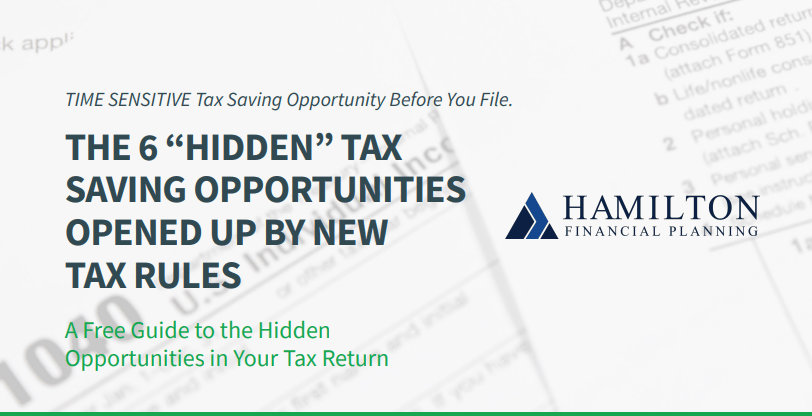
By Scott Hamilton
There are so many factors that go into retirement planning, but maxing out your 401(k) contributions is often seen as one of the most important things you can do. While automatic contributions are easy to set up and can be an absolute game changer in your financial routine, maxing out your 401(k) might not be the best option for you. Let’s take a look at a few reasons why.
Table of Contents
You May Have Other Financial Priorities
While saving for retirement is important, it’s not the only financial goal you may have. For example, you may be saving for a down payment on a home, paying off debt, or building up an emergency fund. If you funnel all your extra money into your 401(k), these other areas of your finances may end up neglected. Make sure you have a well-rounded financial plan that addresses all your priorities. To start, consider the following to help you assess other potential goals:
- Pay down any high-interest credit card debt.
- Build up an emergency fund with 3-6 months’ worth of living expenses.
- Make sure you have adequate health insurance.
- Review your estate plan: do you have a basic will or trust in place to safeguard your loved ones in your absence?
- Consider disability insurance in case an accident or injury prevents you from working for an extended period of time.
- If you are married or have dependent children, consider obtaining adequate life insurance.
You May Have Access to Better Investment Options Elsewhere
Most 401(k) plans offer a limited selection of investment options, which may not be the best fit for your strategy. Suppose you have other investment accounts, such as an IRA or taxable brokerage account. In that case, you may have access to a wider variety of investment options.
For example, let’s say your 401(k) plan only offers mutual funds but you’re interested in investing in individual stocks or exchange-traded funds (ETFs). In this case, an IRA or taxable brokerage account may be the better option. By diversifying your investments across multiple accounts, you can improve your returns and invest in the right mix of assets for your financial goals.
You May Want More Flexibility in Accessing Your Money
Contributions to a traditional 401(k) are tax-deductible, but withdrawals in retirement are taxed as income. Withdrawals prior to age 59.5 are subject to tax and a 10% penalty if you don’t meet the strict criteria for a hardship withdrawal. If you’re planning to retire early or have other income streams in retirement, you may want more flexibility in accessing your money. Roth IRAs, for example, allow you to withdraw your contributions at any time without penalty, and qualified withdrawals of earnings are tax-free. Consider whether a Roth IRA or other investment vehicle might give you more flexibility both now and in retirement.
You May Pay Less in Fees With Other Investment Accounts
When considering whether to max out your 401(k) contributions, it’s also important to take into account the fees associated with these plans. Though 401(k) plans are convenient, they can also be expensive, with costs including administrative fees, investment fees, and expense ratios, among others. These fees can eat into your investment returns over time and can be especially costly if you’re not paying attention to them. Make sure you understand the fees associated with your 401(k) plan and consider whether there are lower-cost investment options available to you. It’s worth seeking the advice of a financial advisor to help you navigate these fees to help you get the most bang for your buck.
If You Do Max Out Your 401(k), Know Your Limits
If you choose to max out your 401(k), it’s important to know your contribution limits. For 2023, you can defer as much as $22,500 into your 401(k). (This increases to $23,000 for 2024.) An additional $7,500 in catch-up contributions is allowed for those over 50.
One of the best parts of a 401(k) plan is that many employers offer matching contributions. The most common matching formula is 50% of employee contributions up to 6% of salary. This means your employer will contribute a maximum of 3% of your salary if you contribute 6%. Since employer matches are essentially free money and not considered income in the year received, it’s generally advised to contribute at least enough to get the maximum matching contribution, even if you don’t max out the full contribution amount.
Is Maxing Out Your 401(k) the Best Choice for You?
The decisions about whether or not to max out your 401(k) contributions depend on your unique situation and financial goals. This decision, along with many other retirement options, can make retirement planning a complex journey.
At Hamilton Financial Planning, our goal is to help you implement a plan for a dignified and independent retirement. If you’re interested in partnering with a fee-only financial advisor, we invite you to schedule a complimentary get-acquainted meeting online or reach out to us at 512-261-0808 or scott@hamiltonfinancialplanning.com. We look forward to speaking with you!
About Scott
Scott Hamilton is founder and chief financial officer at Hamilton Financial Planning, a wealth management firm that specializes in providing comprehensive financial planning for retirees. With over 20 years of experience in the financial industry, and having completed over 250 financial plans for retirees across all industries, but mostly the oil and gas industry, Scott is passionate about providing his clients with the tools and insight they need to achieve their financial goals. He has a Bachelor of Business Administration in finance from Texas State University and an MBA in international finance from Pepperdine University. Scott has also been happily married to his wife, Gayle, for over 25 years. To learn more about Scott, connect with him on LinkedIn.

